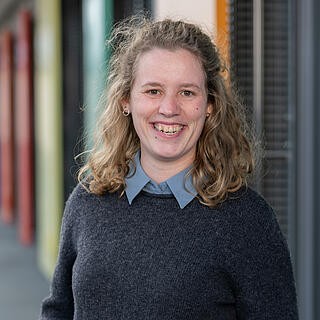Circular economy solutions for plastics, textiles and urban mining

© Öko-Institut
20 per cent less plastic, well-established recycling systems and increased use of recycled content in the manufacturing of new plastic products. Improved separation and sorting of materials for an optimised circular economy in the construction and automotive sectors, and appropriate legal frameworks for the use of secondary raw materials. Extended producer responsibility (EPR) as the key to financing textile waste collection and disposal, and mandatory requirements for sustainable textiles in the EU’s new ecodesign rules.
These and other topics were discussed by Oeko-Institut and external experts at the digital forums hosted by the institute as part of its Science Forum on the Circular Economy.
Digital Forum: Plastics – Towards efficient closed loops
More than 94 per cent of all plastics are currently fossil-based – even though numerous alternatives already exist, such as bioplastics, garment manufacturing from waste tyres, and packaging that is synthesised from industrial CO2. However, the main challenge for the future plastics industry is to close loops as efficiently as possible.
To that end, a clear hierarchy is required for a circular economy, as Andreas Manhart, Senior Researcher at the Oeko-Institut, emphasised at the institute’s first digital forum. The priority, he said, is to reduce consumption of plastics and raw materials, followed by reuse and various recycling processes, also based on a hierarchy: mechanical recycling, including depolymerisation, and chemical recycling, comprising pyrolysis and gasification. The capture and use of carbon compounds and utilisation of biogenic raw materials for plastics production appear only at the end of the chain, once all other options have been exhausted.

“In the long term, we must move away from one-time recycling towards a circular economy in which products remain in use for as long as possible before being recycled as efficiently as possible in various high-quality steps and processes,” says Andreas Manhart, summing up the challenges facing a circular economy for plastics.
Documentation: all inputs at the Digital Forum on Plastics
Digital Forum: Urban Mining – The key to sustainable resource use
Managing the anthropogenic material stock – defined as the pool of raw materials locked away in infrastructures, buildings and everyday goods – is becoming ever more relevant in relation to sustainable resource use. In Germany, the anthropogenic stock currently contains around 52 billion tonnes of material and according to some estimates, almost one billion tonnes of materials are added every year. A substantial proportion of these materials is bound up in the construction and automotive sectors.
At the Oeko-Institut’s second digital forum, the experts underlined the need for improved recycling technologies and policy frameworks to promote a circular economy. Various options were proposed, including mandatory dismantling of specific vehicle components for more efficient recovery of high-value inputs, and more stringent mandatory recyclate input quotas, coupled with government support to increase their economic viability. Better characterisation and pre-sorting of residues and wastes in the construction sector also offer potential to improve the recyclability of resources such as steel and mineral building materials.
Documentation: all inputs at the Digital Forum on Urban Mining
Digital Forum: Textiles – Towards a circular economy in the EU and worldwide
Approximately 12 million tonnes (Mt) of textiles are placed on the European Union market every year. Of this figure, an estimated eight million tonnes end up in incineration or landfill. EU citizens discard on average 16 kg of textile waste per capita each year.
Experts at the third digital forum called for policy instruments and economic mechanisms in the fields of sustainable design, aimed at durability, repairability and reusability of textiles; reformed business models geared more strongly towards reuse, resale or repair operations; and the development and expansion of infrastructures such as collection and recycling systems for textile waste – in the EU and worldwide.
This forum also featured inputs by experts from Colombia, Ghana, India and Latvia, who reported on circular economy measures for the textiles sector in their countries. The discussion centred on topics such as financing for setting up appropriate infrastructures; peer learning; and technical and human capacity-building for a circular economy. The EU should be supporting these countries in all these thematic areas, in the experts’ view.

“We need clear targets for reuse, a strong EU-wide consensus on textile collection and recycling requirements for manufacturers, extended producer responsibility, and a fee-based system that co-finances the management of exported textile waste in non-European countries,” says Clara Löw, a circular economy researcher at the Oeko-Institut.
Documentation: all inputs at the Digital Forum on Textiles
Concluding forum: The Circular Economy – From bright idea to broad-scale action
The Science Forum will conclude with a half-day session in Berlin as a platform for sharing positive visions for the future and reflecting on the frameworks needed to implement a circular economy. Together with stakeholders from science, business, politics and civil society, the Oeko-Institut will discuss how the circular economy can be established as a viable business model, which justice issues need to be resolved to support structural reform, and how citizens and policymakers can work together to make change happen.








